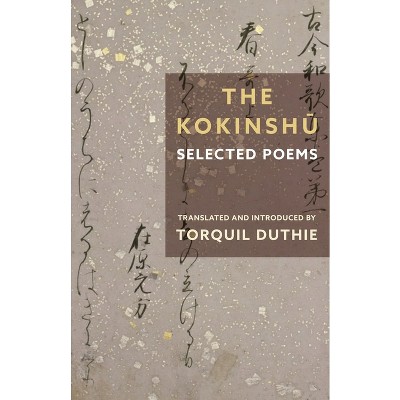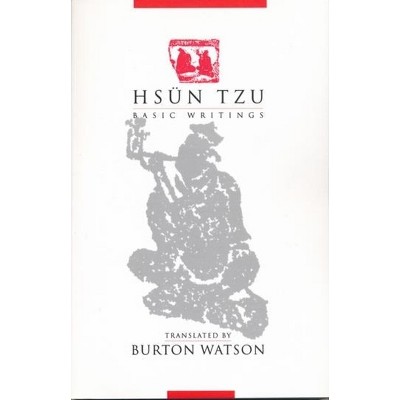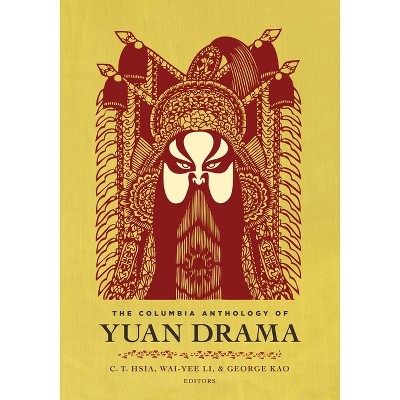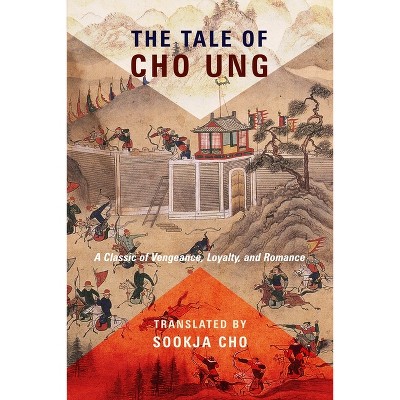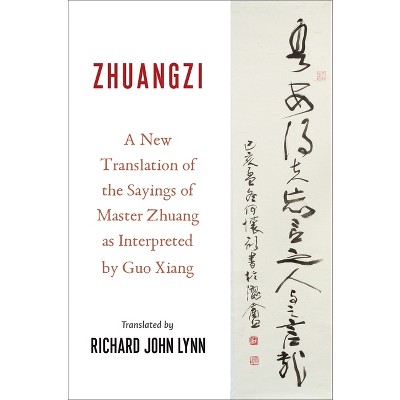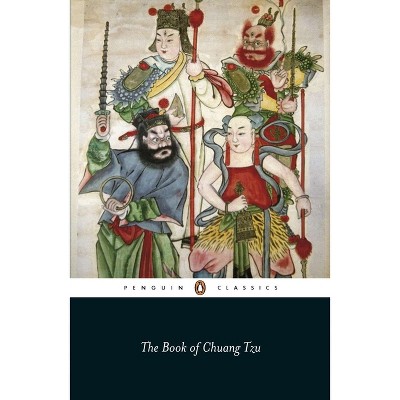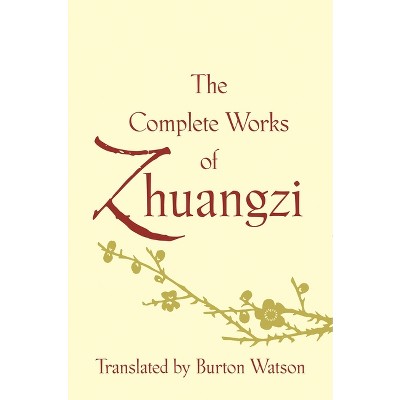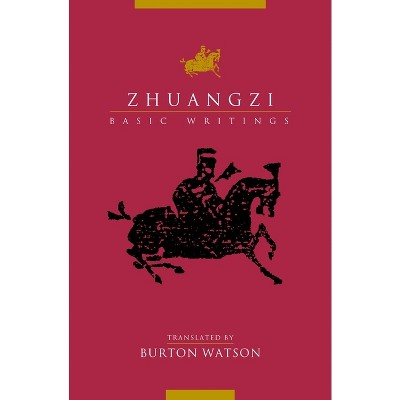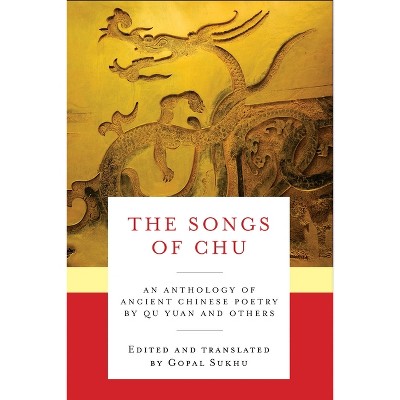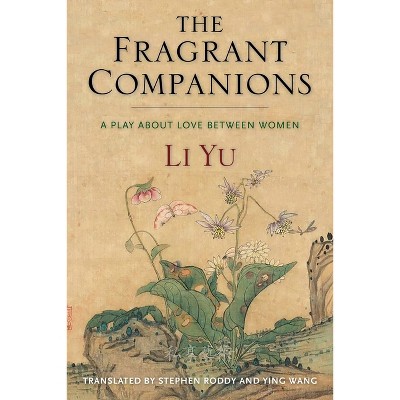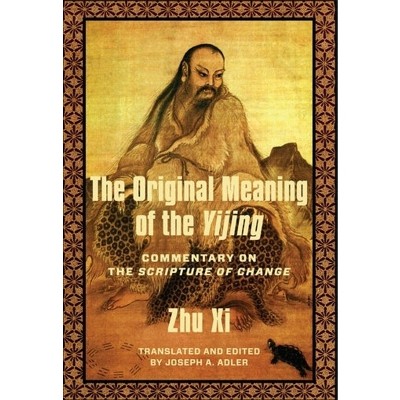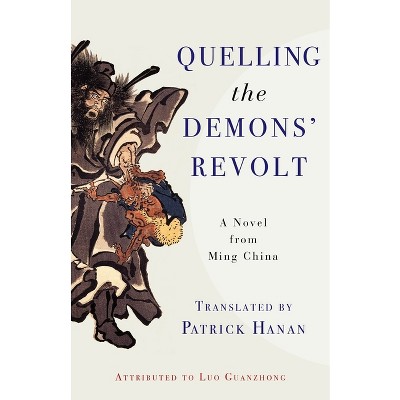Sponsored

Zhuangzi - (Translations from the Asian Classics) (Paperback)
In Stock
Sponsored
About this item
Highlights
- The Zhuangzi (Sayings of Master Zhuang) is one of the foundational texts of the Chinese philosophical tradition and the cornerstone of Daoist thought.
- About the Author: Richard John Lynn is professor emeritus of Chinese thought and literature at the University of Toronto.
- 808 Pages
- Literary Criticism, Asian
- Series Name: Translations from the Asian Classics
Description
About the Book
The earliest and most influential commentary on the Zhuangzi is that of Guo Xiang (265-312). Richard John Lynn's translation of the Zhuangzi is the first to follow Guo's commentary in its interpretive choices. Its guiding principle is how Guo read the text, which allows for the full integration of the Zhuangzi with Guo's commentary.Book Synopsis
The Zhuangzi (Sayings of Master Zhuang) is one of the foundational texts of the Chinese philosophical tradition and the cornerstone of Daoist thought. The earliest and most influential commentary on the Zhuangzi is that of Guo Xiang (265-312), who also edited the text into the thirty-three-chapter version known ever since. Guo's commentary enriches readings of the Zhuangzi, offering keen insights into the meaning and significance of its pithy but often ambiguous aphorisms, narratives, and parables.
Richard John Lynn's new translation of the Zhuangzi is the first to follow Guo's commentary in its interpretive choices. Unlike any previous translation into any language, its guiding principle is how Guo read the text; Lynn renders the Zhuangzi in terms of Guo's understanding. This approach allows for the full integration of the text of the Zhuangzi with Guo's commentary. The book also features a translation of Guo's complete interlinear commentary and is annotated throughout. A critical introduction includes a detailed account of Guo's life and times as well as analysis of his essential contributions to the arcane learning (xuanxue) of the fourth century and the development of Chinese philosophy. Lynn sheds new light on how the Daoist classic, which has often been seen as a timeless book of wisdom, is situated in its historical context, while also considering it as a guide to personal cultivation and self-realization.Review Quotes
Handsomely designed, these books nicely round out the avid reader's bookshelf.-- "Contemplating the I Ching"
Richard John Lynn's new translation of the Zhuangzi offers a significant contribution to the field of Zhuangzi studies, catering to a variety of scholarly and pedagogical preferences...an invaluable addition to existing translations of this important classic.-- "Journal of Asian Studies"
A hugely valuable resource for scholars and general readers who would like to understand the text more thoroughly.-- "Paradigm Explorer"
Essential reading.-- "Religious Studies Review"
Spearheads a fresh approach to the study of the Zhuangzi, enriching the understanding of this profound philosophical work for English-speaking readers and scholars alike.-- "Monumenta Serica"
This new translation, an admirable result of a longstanding dedication to Guo Xiang's Zhuangzi, truly
deserves not only a special place on our bookshelves but will become a treasured point of reference for anyone who appreciates the aphorisms, wisdom, and literary qualities of those bundles of cherished texts attributed to Master Zhuang.
Lynn's translation of the Zhuangzi undoubtedly represents great progress in the English translations of the Zhuangzi and Zhuangzi studies.-- "Philosophy East and West"
Richard John Lynn has, in the course of a distinguished career, given us magisterial translations of the Book of Changes and the Laozi. Now he crowns these achievements with an equally impressive translation of the Zhuangzi . . . I trust his book will remain a source of inspiration for many years to come.-- "Journal of Chinese Studies"
Richard John Lynn's Zhuangzi is an incredible boon to Western academia. It not only demonstrates scholarship on the highest level, but also provides a constructive avenue for others to do the same.-- "Dao: a Journal of Comparative Philosophy"
As a major commentator, Guo Xiang not only illuminated the meaning of the Zhuangzi but also shaped a way to understand that great Daoist classic. Richard John Lynn's excellent translation of Guo Xiang's version of the Zhuangzi will be essential for the study of Daoism and Chinese philosophical tradition in general. This is a great contribution!
--Zhang Longxi, author of Allegoresis: Reading Canonical Literature East and WestFollowing his acclaimed Yijing and Laozi renderings, Richard Lynn offers an authoritative translation of the Zhuangzi together with, and through the lens of, its formative commentary. Lynn's unique scholarly approach brings the Zhuangzi alive as a complex, layered work of both ancient and early medieval Chinese philosophy.
--Martin Kern, coeditor of Confucius and the Analects Revisited: New Perspectives on Dating, Composition, and AuthorshipFor far too long the Zhuangzi has been read through a Buddhist lens, and Guo Xiang treated as an aberrant commentator who distorts the Zhuangzi by reading it in political ways. As both parts of this picture are flat wrong, Lynn's translation, which reads the Zhuangzi through its first systematic commentary, restores the Zhuangzi to all its inherent political genius and original power.
--Michael Nylan, author of The Chinese Pleasure BookRichard John Lynn's much-anticipated translation of the Zhuangzi as interpreted by Guo Xiang is a monumental achievement of exceptional scope and depth. This magisterial rendering of the earliest wholly extant commentary and version of the Zhuangzi is presented with superb discussions of key issues and debates surrounding the text. Lynn's brilliant work will be indispensable for the study of Chinese philosophy, intellectual history, and literature.
--Wendy Swartz, author of Reading Philosophy, Writing Poetry: Intertextual Modes of Making Meaning in Early Medieval ChinaAbout the Author
Richard John Lynn is professor emeritus of Chinese thought and literature at the University of Toronto. His previous Columbia University Press books are The Classic of Changes: A New Translation of the I Ching as Interpreted by Wang Bi (1994) and The Classic of the Way and Virtue: A New Translation of the Tao-te Ching of Laozi as Interpreted by Wang Bi (1999).


